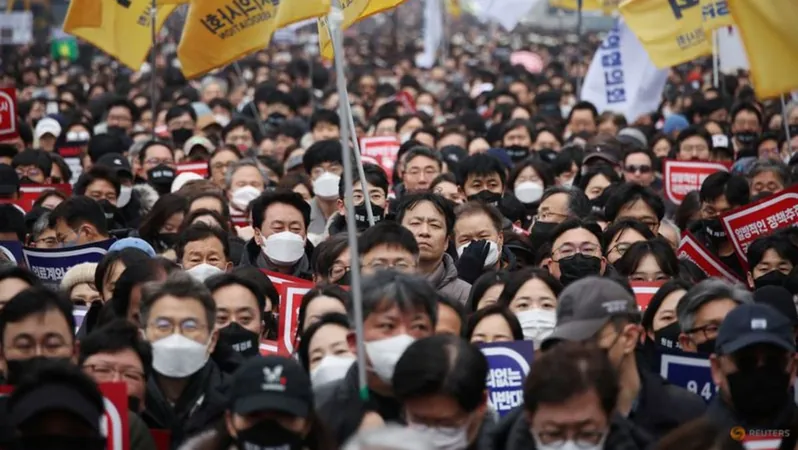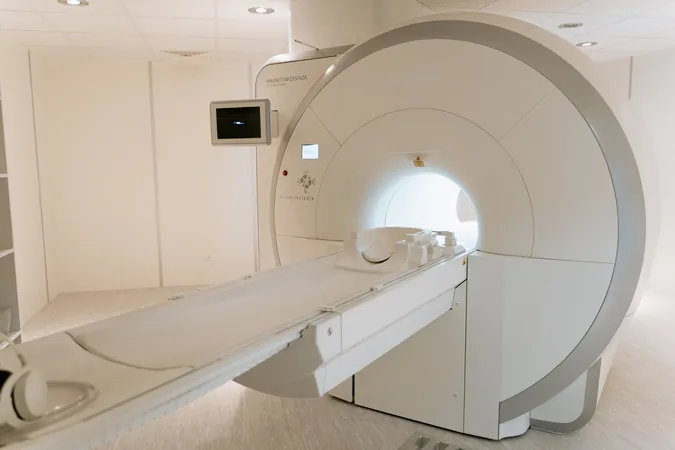
South Korean Medical Students End 17-Month Class Boycott, A Move Towards Change
2025-07-14
Author: Jia
South Korea's Medical Students Ready to Return After Prolonged Boycott
In a significant turning point for South Korea's healthcare crisis, thousands of medical students are finally preparing to re-enter their classrooms after a staggering 17-month boycott. This announcement, made by the country's medical association, marks the end of a lengthy protest that has also seen junior doctors engaging in strikes.
Healthcare Crisis Sparks Boycott and Strikes
The backbone of this turmoil was the controversial initiative proposed by former President Yoon Suk Yeol, aimed at dramatically increasing medical school admissions to tackle the urgent need for doctors in a rapidly aging society. The move sparked immediate outrage among medical professionals, leading to widespread protests, cancelled operations, and disrupted healthcare services across the nation.
Government's Shift in Policy Following Public Outcry
Amid the chaos, the government was forced to reconsider its stance. The initial proposal was significantly diluted, and by March 2025, it was scrapped altogether following Yoon's impeachment due to his disastrous martial law declaration. This shift symbolizes a victory for the medical community and a restructuring plan for the future.
Return to Class: A Key Step Towards Stability
"Students have agreed to resume their studies," stated a spokesperson from the Korean Medical Association. Each institution will now determine the specific schedule for students' return. According to the Korean Medical Students' Association, this decision was made in light of the risks that a prolonged boycott posed to the integrity of the medical system.
Continued Struggles for Junior Doctors
Approximately 8,300 students are set to return to their education, although no exact timeline has been disclosed. Prime Minister Kim Min-seok celebrated this change as a "substantial step forward" and indicated that President Lee Jae-myung is actively seeking solutions to the ongoing medical strikes.
Historic Changes in Medical Education and Public Response
The protests and subsequent strikes are not isolated incidents; last year saw around 12,000 junior doctors walking off the job, with many still reluctant to return. Lee, who assumed office after winning a snap election following Yoon’s departure, pledged to find a resolution to these pressing issues. Additionally, the surge in medical school admissions has prompted a record number of students to retake their college entrance exams, underscoring the urgency and desire for change within the medical education landscape.

 Brasil (PT)
Brasil (PT)
 Canada (EN)
Canada (EN)
 Chile (ES)
Chile (ES)
 Česko (CS)
Česko (CS)
 대한민국 (KO)
대한민국 (KO)
 España (ES)
España (ES)
 France (FR)
France (FR)
 Hong Kong (EN)
Hong Kong (EN)
 Italia (IT)
Italia (IT)
 日本 (JA)
日本 (JA)
 Magyarország (HU)
Magyarország (HU)
 Norge (NO)
Norge (NO)
 Polska (PL)
Polska (PL)
 Schweiz (DE)
Schweiz (DE)
 Singapore (EN)
Singapore (EN)
 Sverige (SV)
Sverige (SV)
 Suomi (FI)
Suomi (FI)
 Türkiye (TR)
Türkiye (TR)
 الإمارات العربية المتحدة (AR)
الإمارات العربية المتحدة (AR)